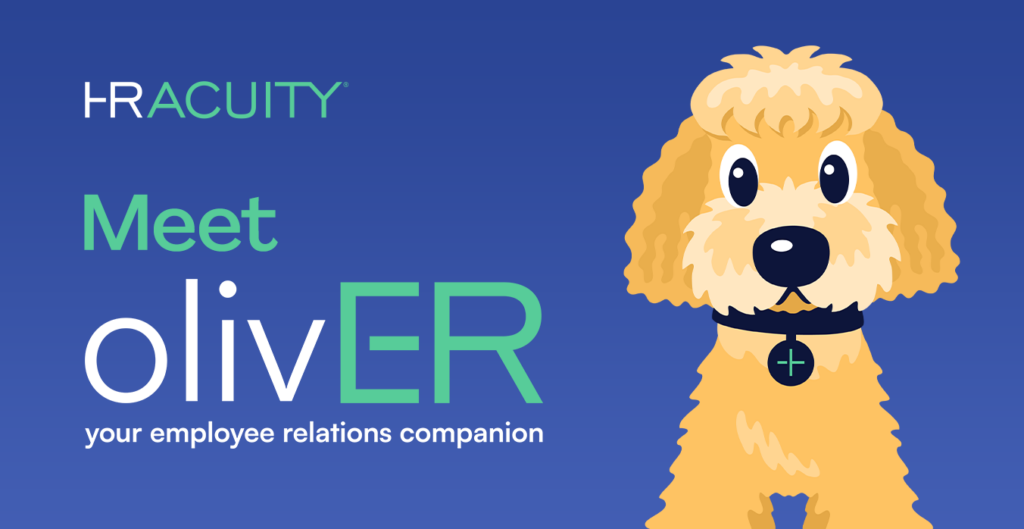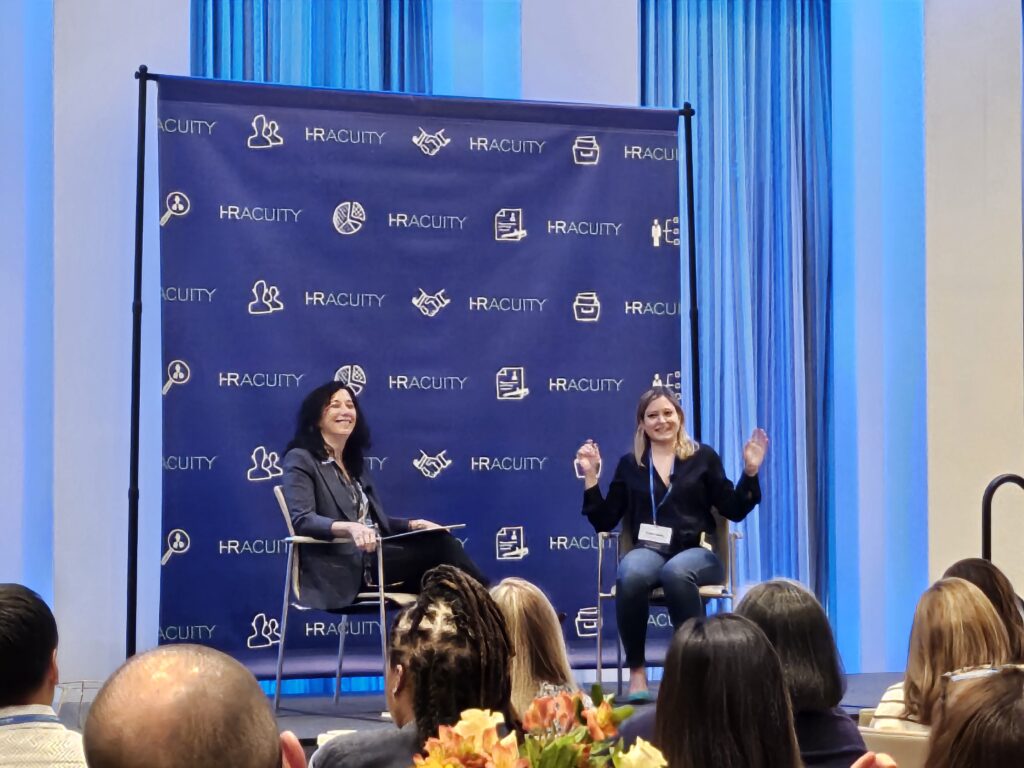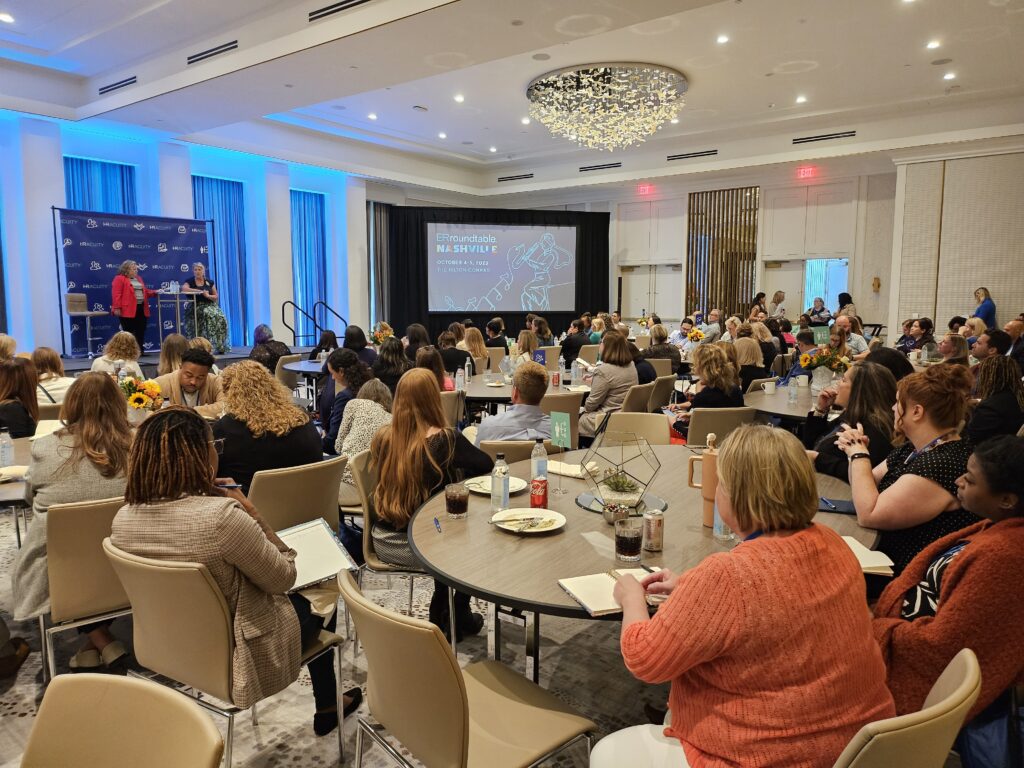Part 1 of an Interview with Nancy Altobello, Former Global Vice Chair of Talent, EY by HR Acuity CEO Deb Muller
There are many words that come to mind when I think of working as an employee relations and HR leader during this global pandemic. Unprecedented. Uncharted. Empathy. Action. Creativity. Care.
Another is resilience, and I think it’s perfect for these times. It’s also a favorite of one of my trusted colleagues, Nancy Altobello.
Nancy is the former Global Vice Chair of Talent responsible for heading up consulting giant’s EY’s global talent function for more than 250,000 people in over 150 countries. She’s now a corporate board member, and a member of the compensation and talent development board committee.
Nancy uses “resilience” in a 3-part best-practice framework for how we as HR and ER leaders can lead through our teams through the crisis:
- Resilience
- Recovery; and
- Reimagining.
I was thrilled to able to speak with Nancy earlier this month about her perspective on those three pillars as we all navigate through the pandemic and beyond. Here’s some of our conversation, lightly edited for clarity and brevity, about resilience. Next week, I will share our thoughts about moving forward, in recovery and reimagining.
You can also listen to the entire conversation here, in the webinar replay.
Deb Muller:
Nancy, welcome! This is really an unprecedented time and a global crisis that we’re all going through together. It’s significant because of its sudden impact on the health of everyone, on business and the economy. And personally, it’s impacting us and our families with school closures, childcare needs, disruption at every level in our world.
As HR leaders, we’ve been thrown into this. What’s even more challenging is that it’s changing every day. Last week’s problems are helping us drive today’s resolutions, and we know that tomorrow won’t be the same as yesterday. That’s really the only certainty that we have right now.
There is no playbook. We have to rely on our instincts, our community of leaders and get things done.
Nancy, what is your perspective on what is required now?
Nancy Altobello:
Thanks Deb! It’s really good to be with you despite it being through such a terrible time, and such an overwhelming crisis. I’ve led EY through a lot of crisis management. My career had been for many years leading our businesses, but unusually in 2008 when we started to go into the economic recession, our chairman asked me to move into a talent role. He said, “We need a really hard-headed business operator who has a heart, and who can operate with instincts and courage through this time, because we’re going to go through something no one has ever seen.”
I think this is the same kind of time, though much more encompassing. Many times you’re dealing with crises that only impact you at work. This one is 24/7, because your work is at home, or your families are dealing with it.
I find when you’re dealing with something so overwhelming, it’s really good to break it down into things that are more manageable, understandable and actionable. So I started to break this down into three categories.
- One is resilience, which is the concept of staying strong while getting through the immediate crisis, making the right decisions today, but really doing it with strength and with resilience.
- The second phase is recovery, which is beginning to get back to more normal conditions, and that’s not going to be a turn of the switch.
- Then finally, the one that’s most energizing is the re-imagining. That’s the phase where you evaluate how things went, and you start to reimagine your business model in ways of working going forward, really working with your full leadership team on how has our business changed, and what opportunities do we have?
Deb:
I think that’s great. To break it down makes it a little more attainable, and you can take each day at a time. So what do you think some of the key challenges for the HR leaders are now as they navigate these early stages of the pandemic?
Nancy:
Number one is taking care of employees, keeping them safe, but also helping them to become more productive, to stay productive and defining what productive means in this kind of crisis. What does it mean when many employees have also become a teacher? They’ve become the caregiver of people. That’s a really important challenge. The situation is changing so much every day.
Another challenge is, when do you just have to wing it versus following every regulation? Because some of these regulations are evolving so quickly, they may not match up what’s best for your employees. What’s important there is making sure you’re just documenting everything so you can pick up the pieces later.
Another challenge is asking people to do things they’ve never done before. That’s both managers and employees. Giving up control, helping people to understand you can give up control and help people to do the right thing. You don’t have to be watching them all the time.
You do need to monitor regulations and understand what the rules and laws are, because some of them must be followed in every location that you’re doing business. For many companies, that’s really a challenge.
Then recognizing that employees need clarity. Employees need a sense of comfort and safety. They’re looking for you for guidance and answers. They rely on their employer for their livelihood. They want to do the right thing so that their livelihood is there afterwards. The more that we can be clear in a very uncertain and unclear time is a huge challenge.
Deb:
I think we have to do what you think is best with the information that you have at that time, because some of these things take longer. Document what you’re doing and use your instinct.
So more specifically, are there any protocols or areas that you think really need to be considered or thought about in ways that might be different?
Nancy:
Well, look, everyone needs to move fast. Tomorrow can be too late. But rely on processes you have in place. Understand you’re going to be moving fast, but use your existing protocols for how you change policies and how you notify.
Make sure you have a central location where everything is being kept so that people around your organization can understand what’s happening. I do think we want to strive for consistency, but I understand the world isn’t all the same right now. And you might need to pick up the pieces later.
Try to have something in place to understand what other companies are doing, having a network in place and share practices.
And very importantly, define what needs to be done in the workplace, particularly for those who are in the workplace. Cleaning work sites, policies around who can come into the work environment, what hours people should be working and how shifts should work, different ways of work and processes. We’ve seen examples in grocery stores with the plastic shields between the cashier and the customers, creating queues in a different way.
Think about how technology can be used to provide better safety in the workplace.
Consider childcare needs, as children are out of school or daycare and you don’t have those practices in place when it’s during the normal school year.
Make sure employees have the supplies they need, whether it’s cleaning supplies or for those who are working remotely, what they need from a technology perspective.
And then very importantly, make sure you have some process in place to capture those who are personally impacted by the virus, either themselves or someone in their household.
That’s a lot of things to do.
Deb:
How do you think leaders need to recognize and respond to the personal toll this is taking on their employees?
Nancy:
There are so many immediate issues that people are dealing with: tactical things, liquidity things, supply chain things, but step back and help you yourself as an HR leader or your other senior leaders in the organization to recognize the anxiety that people are feeling, isolation, not being able to get out. That is fraught with all kinds of anxiety.
Many people are overcrowded in their homes or their apartments. And then of course the economic impacts.
You just have to reflect and remind people, at this time, it’s so important to be empathetic, to think about how people are in different positions, and really reevaluate your employee assistance programs. Are they adequate? Can you re-communicate them to your employees and ensure that tele-options are available? It’s critical because people really need the help.
From the manager perspective, it’s how to effectively lead remotely. How do you set expectations for your employees, and how will you measure whether or not they’re achieving them?
How do you move to an output mindset? How do you share best practices with your other leaders in the organization? You want to help provide forums for them to get together.
Your managers should be thinking, how do I keep my, my group engaged? How do I keep them connected to each other?
For employees, it’s giving them tips on how to conduct themselves, how to work remotely, how to get things done and stay connected. There are some really good slide decks out there, really good programs I’ve seen just when I search about what companies have been doing. And I think it’s really important that you leverage that material. It will keep people productive.
Deb:
What role can senior leaders play in resilience?
Nancy:
I think a CEO and the other senior business leaders can also function as super connectors. They can tell employees what’s going on across the organization so employees aren’t just seeing their little piece. They do need to be empathetic. They need to understand the many, many more worries people have in a small place, with small children, with different financial situations.
It’s also an opportunity for a CEO to remind people of the company purpose, why does the company exist, why their work matters and help them just be energized around that
And remember, people need safety and community, and their workplace can be that, even remotely.
Wise words, indeed.
Thank you, Nancy, for giving us all important tips and advice on remaining resilient through this crisis. I’ll continue my conversation with Nancy next week, on the recovery and how we emerge even stronger, through reimagining.
I sincerely hope you are all staying safe and healthy. Please let me know how I can be of help. I’m at dmuller@hracuity.com.





